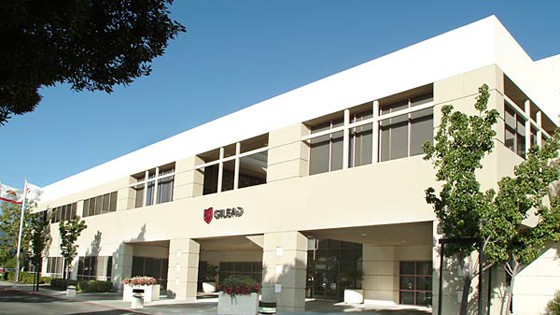
The US Food and Drug Administration (FDA) has started its review of Gilead Sciences’ marketing application for idelalisib in non-Hodgkin’s lymphoma (NHL), setting a completion date of September, 2014.
The agency has set a standard review time for idelalisib in double refractory indolent NHL, even though it decided to grant an accelerated review for the drug’s use in chronic lymphocytic leukaemia (CLL). The drug was awarded breakthrough status in the latter indication last month after positive results in a pivotal trial.
The marketing application in NHL was filed last September on the back of a single phase II trial in patients whose disease had progressed despite treatment with Roche and Biogen Idec’s Rituxan (rituximab) or conventional chemotherapy.
Idelalisib (formerly GS-1101) has shown particular promise in follicular lymphoma (FL), the second most common type of NHL, and caused something of a stir last year when it was shown to achieve a 50 per cent response rate – which was sustained over several months – in FL patients who had failed other types of therapy.
The drug acts as an inhibitor of phosphatidylinositide 3-kinase (PI3K), an enzyme central to a cellular pathway involved in the growth and proliferation of B cells, and is the furthest along in development of all compounds in the class. Its nearest competitor is Infinity Pharmaceuticals’ IPI145 which is in phase II trials.
Much of the buzz around idelalisib is in CLL as it could provide a much-needed additional line of therapy along with advantages over established drugs, including oral administration, and analysts have suggested the drug could make upwards of $500m a year at peak in that indication alone.
Approval in NHL could add significant upside to that, given that NHL is one of the fastest-growing cancers in terms of incidence in the developed world.
In CLL, idelalisib will compete head-to-head with Pharmacyclics and Johnson & Johnson’s much-anticipated Imbruvica (ibrutinib), which acts as a Bruton’s tyrosine kinase (BTK) inhibitor, a similar but distinct mechanism to Gilead’s drug. Ibrutinib was cleared for mantle cell lymphoma this month and – if approved for CLL – has been tipped as a $1bn-plus product.
Gilead has phase III confirmatory trials ongoing in both NHL and CLL, and is also developing a follow-up P13K inhibitor, GS-9820, that has reached the phase II testing stage.
Gilead has made a concerted push into oncology in a bid to diversify its portfolio from its traditional focus on antiviral medicines, and has been building a commercial operation to market idelalisib and other cancer drugs in its pipeline that should be fully operational in the middle of 2014, according to Kevin Young, the firm’s head of commercial operations.
Behind idelalisib, Gilead has a JAK1/JAK2 inhibitor called momelotinib in phase III testing for myelofibrosis, simtuzumab for pancreatic and colorectal cancer in phase II and GS-5745, an entire MMP9 antibody in phase I/II testing for pancreatic and gastric cancers.




